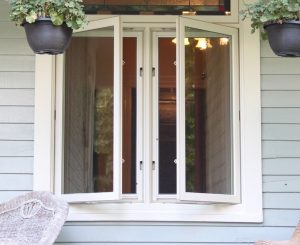

Casement Window
Casement Windows Casement windows open outward, to the left or right, and are hinged on the side. One, two, three, four, or five-lite configurations are
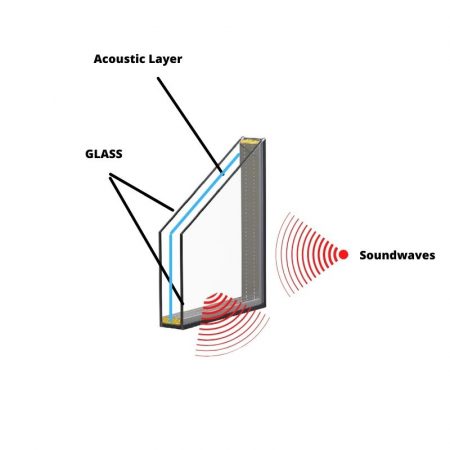

Which glass performs better in terms of noise reduction and soundproofing?
The best glass for noise reduction and soundproofing your home will be determined by the level of disturbance you are experiencing.
When it comes to window glass replacement, it is critical that you understand the benefits of our glazing options, especially if you want to reduce the amount of noise that enters your home.
Surprisingly, triple glazing does not always result in a more peaceful home.
To soundproof your home through your windows, the glass must be of a specific thickness and installed with the appropriate space between each pane.
Reducing background noise improves concentration, promotes better sleep, and leads to increased relaxation and stress reduction.
This is especially important if you live near a busy road, railway line, or airport, or if you simply enjoy peace and quiet.
Your windows will play an important role in reducing noise pollution in your home.
Glass is an excellent conductor of sound.
A single pane of glass or untreated glazing will do little to keep outside noise out of your home.
If you still have single-glazed windows in your home and want to increase the value of your home while reducing noise pollution, it may be time to upgrade.
Soundproof glazing deflects and dissipates sound waves.
This can be accomplished in three ways:
The thicker the glass, the better its noise-cancelling abilities.
Glass, on the other hand, has a natural coincidence frequency (the pitch at which it will amplify the sound), which is why double glazing with two different thicknesses of glass is a better option.
To counteract the coincidence frequency, the different thicknesses change the sound wave as it travels through the unit.
The greater the gap between glass panes, the better the acoustic performance of soundproof glazing.
However, we understand that your space is limited and that thick windows are impractical.
Noise reduction can be increased by filling the gap between the panes with argon and krypton, or by creating a vacuum between the panes.
Triple glazing works by adding another layer of air to deaden outside noise.
The outer pane of laminated glass is formed by a thin layer of polyvinyl butyral (PVB) sandwiched between two panes of glass.
By dampening soundwaves, PVB provides excellent acoustic performance.
It also makes breaking it much more difficult.
The PVB prevents the glass from shattering and keeps the window in one piece, increasing security.
Soundproof glass will make a significant difference, especially if it means getting a good night’s sleep.
A triple glazed unit with a laminated outer pane will offer the best performance when it comes to insulating your home from external noise pollution.
Despite this, we always recommend acoustic double glazing to our customers.
The reason for this is because we’ve seen the weight of triple glazed glass significantly shorten the lifespan of windows and doors due to the additional strain it puts on the hinges and rollers.
Out of the three options, laminated glass has the poorest performance when it comes to acoustic performance but still offers advantages over regular glass.
Recent technological advancements in the fabrication of the interlayer contained within laminated glass have resulted in an improvement in acoustic performance.


Ian is an experienced glass repair and replacement specialist at Primal Glass Replacement and services the Sutherland Shire area in Sydney.


Casement Windows Casement windows open outward, to the left or right, and are hinged on the side. One, two, three, four, or five-lite configurations are
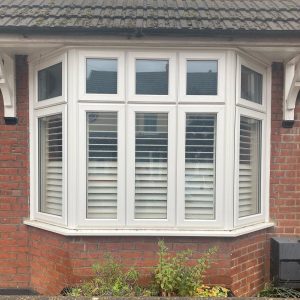

Bay Window A bay window is a type of window that extends outwards from a house’s fascade.From the outside, it appears to be a decorative
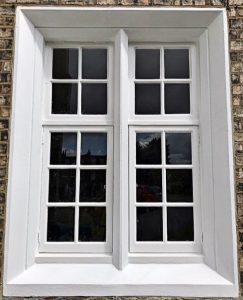

Sash Window Sash windows are vertically opening windows that are commonly associated with traditional architecture & design. Available in single hung (one sliding panel) or
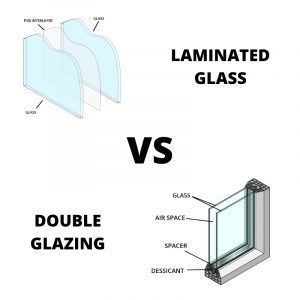

Which One Is Better: Double Glazed Or Laminated Glass? With energy costs in Australia being as expensive as they are, many home owners are realising
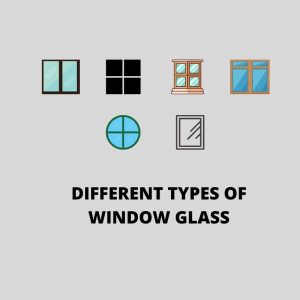

DIFFERENT TYPES OF WINDOWS Different window styles offer different openings. They can also vary in importance based on your individual needs. Ventilation opportunities are increased
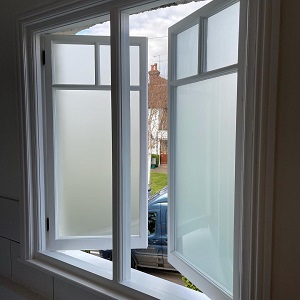

Casement Vs Sash Windows: What’s The Difference? Sash Window Casement Window Both casement and sash windows can be used with a variety of architectural styles

